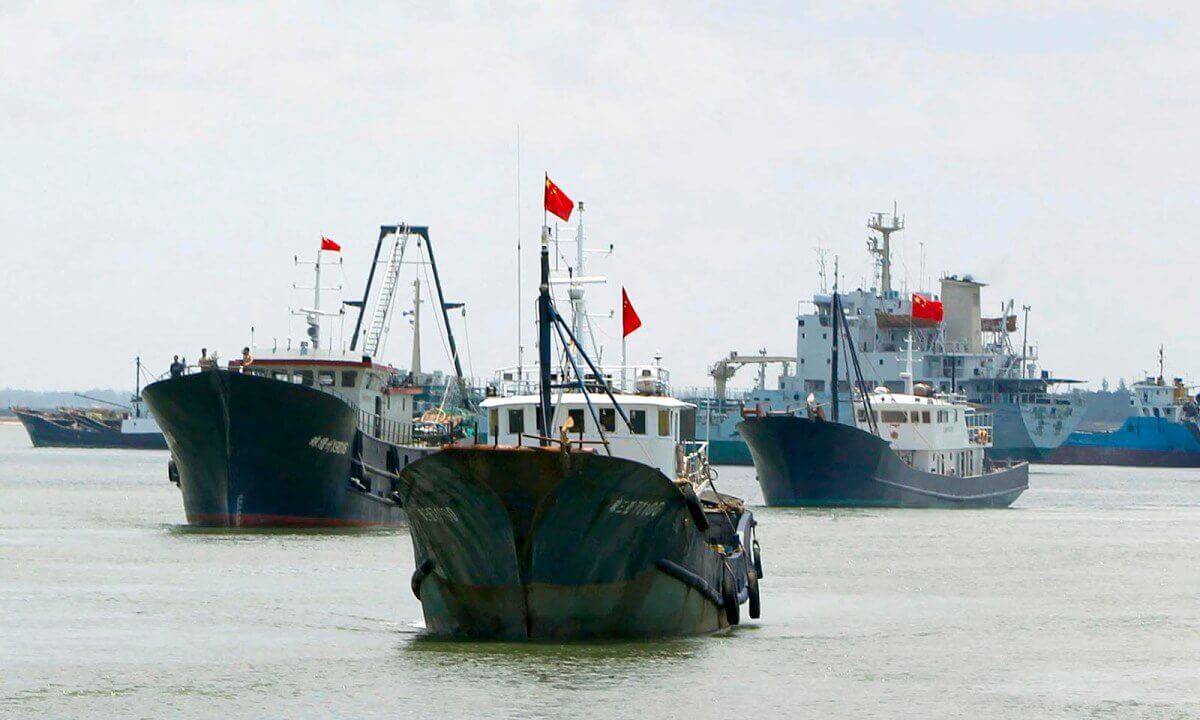The US House of Representatives’ Foreign Affairs Committee held a hearing titled “China’s Maritime Ambitions”. During the hearing, Republican Congressman Ted Yoho urged Western and Asian nations to collectively confront the threat of Chinese expansionism.
The Florida Congressman asked, “If you do not stand up today as a bloc is it going to be possible three years from now?” Thus, he implored the US, Canada, Great Britain, Germany, France, Australia, South Korea, India, and ASEAN as a whole to “wake up” and “stand up to China”. Yoho emphasized upon China’s actions in the South China Sea, where it is involved in territorial disputes with Vietnam, Malaysia, Brunei, Indonesia, and the Philippines. Yoho expressed his alarm at how China is increasingly claiming landmasses that “don’t belong” to it. Indeed, China claims nearly all of the sea’s 1.3 million square miles as its own.
Aside from this rhetoric, Democrat Ami Bera also sought to shed light upon what specific threats need to be acknowledged and challenged, pointing to a host of incidents involving Chinese aggression, such as: “the sinking of a Vietnamese fishing boat, a Chinese Coast Guard vessel chasing a Japanese fishing boat in Japanese waters and Chinese fishing boats swarming Indonesian waters”. Bera declared, “These actions pose serious threats to regional stability and this is not what you see out of a responsible global leader.” Therefore, he asked China to make the decision of whether it wants to be a “responsible global leader” or a “nation that sits apart”. Bera also noted China’s lack of transparency during the coronavirus pandemic, its “economic coercion” tactics, and “predatory lending practices”.
In recent times, China has been significantly increasing its military presence on islands claimed by the Philippines. Over the past two months, the Chinese People’s Liberation Army (PLA) has brought in advanced KQ-200 anti-submarine planes and KJ-500 control aircraft to the Fiery Cross Reef in the Spratly Islands chain. Beijing has also declared Fiery Cross–which is known as Kagitingan in the Philippines–as a part of its own territory in Southern Hainan. Additionally, it has stationed maritime militia vessels for over a year around Thitu Island, which is the Philippines’ largest occupied island in Spratly.
In January, over 60 Chinese fishing vessels were escorted by the Chinese coast guard into Indonesia’s exclusive economic zone (EEZ).
Also in January, China and Pakistan held the annual Sea Guardians event, a nine-day naval exercise. In addition to infrastructural projects, the two nations conduct annual joint naval exercises, often curiously close to India’s west coast.
In April, the Haiyang Dizhi 8, a Chinese government research ship, was spotted conducting a survey close to an exploration vessel operated by Malaysia’s state oil company Petronas.
It appears that certain nations are already taking umbrage with China’s expansionism, much like Congressman Yoho suggested. After Pakistan and China’s joint naval exercise, India immediately deployed its aircraft carrier INS Vikramaditya, flush with combat aircraft.
Likewise, amidst an escalation of tensions between Indonesia and China over the Natuna Islands, Indonesia sent four F-16 jets, and deployed eight warships and patrol vessels.
Similarly, after Chinese vessels entered Malaysia’s EEZ, three US warships and an Australian frigate conducted a joint exercise in the SCS, close to where the Haiyang Dizhi 8 was operating. In addition, a USS America amphibious assault ship and the USS Bunker Hill, a guided-missile cruiser, were deployed to the area.
Australia has elevated its relationship with India from a Strategic Partnership to a Comprehensive Strategic Partnership (CSP). In early June, PM Narendra Modi inked nine agreements with PM Scott Morrison, including a Shared Vision for Maritime Cooperation in the Indo-Pacific” and a Mutual Logistics Support Agreement (MLSA). Morrison also boosted Australia's defence budget by $270 billion, warning that Australia must prepare for a "more dangerous and more disorderly world". He announced that Australia is expanding its “long-range maritime and land strike capabilities”.
India also conducted military exercises in the Indian Ocean with Japan this week amidst a period where both countries are facing heightened “territorial threats” from China—India along the Line of Actual Control (LAC) and Japan with the Senkaku Islands.
China’s increasing maritime aggression and posturing and the resulting international pushback has led to the resurgence of the “Quad” of Australia, the US, Japan, and India. Moreover, it appears that there is growing consensus for a “rules-based order” in the Indo-Pacific region amongst all the players in the area, paving the way for a global confrontation of China’s maritime ambitions, just as the US House Foreign Affairs Committee seeks.
US House Foreign Affairs Committee Holds Hearing Titled “China’s Maritime Ambitions”
They discussed China’s expansionism and aggression in the maritime sphere.
July 1, 2020

IMAGE SOURCE: AFP
